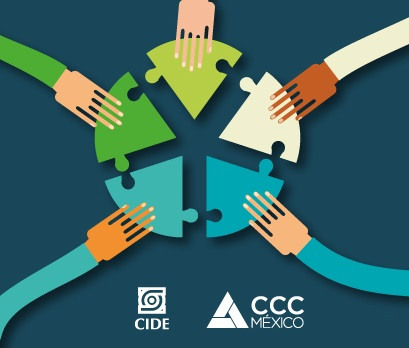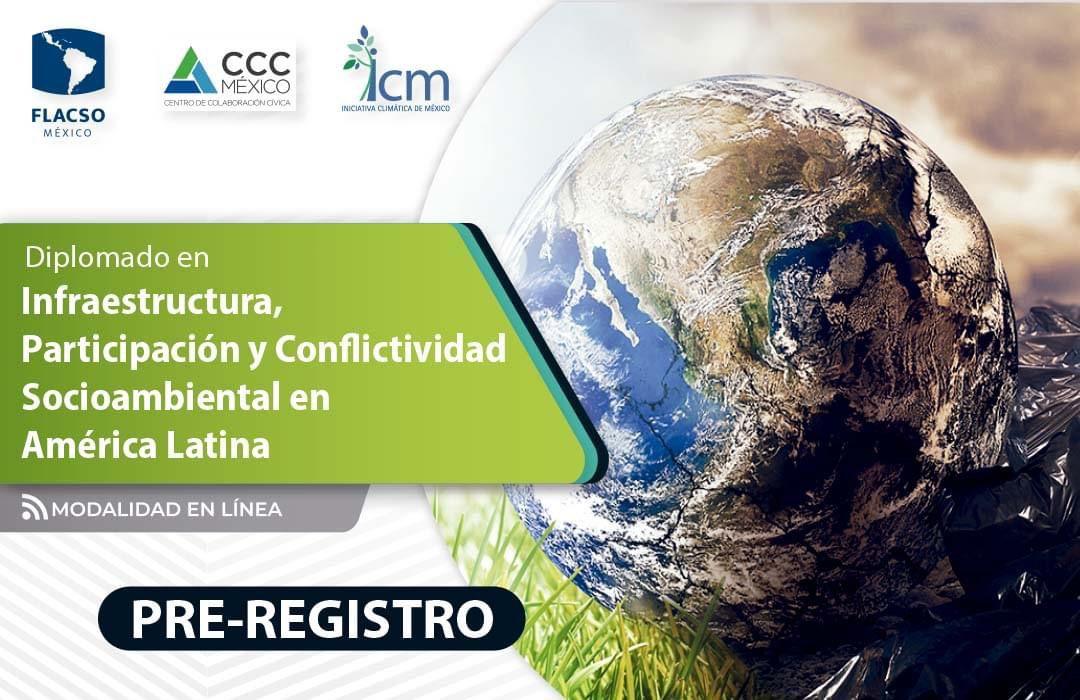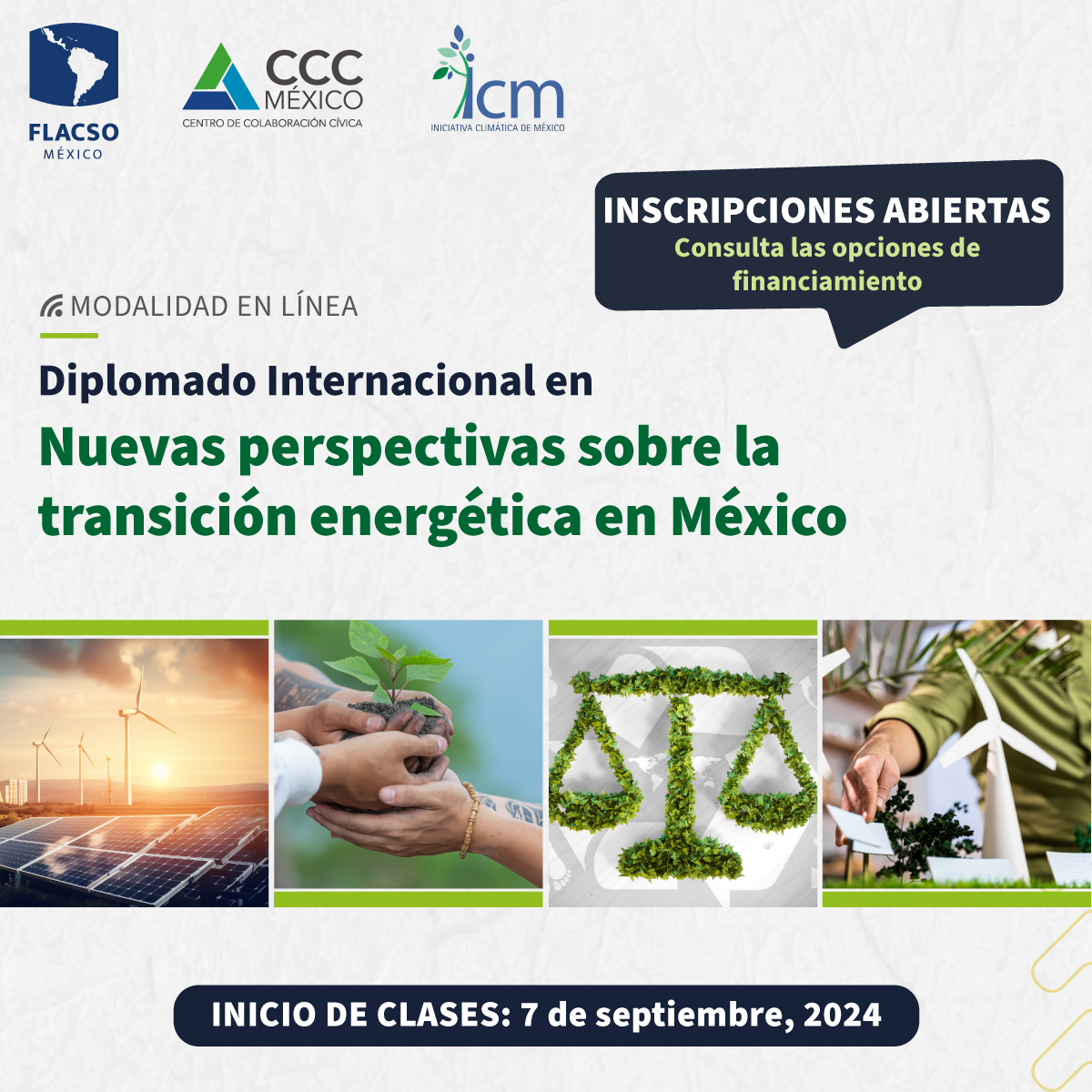Goals
To contribute to the enhancement of civil society through capacities and the construction of citizenship, as well as strong and long-term coalitions that achieve collective, inclusive and effective action, on the most critical social issues.

Diploma in Negotiation, Mediation and Consensus Building.
Read more>
Diploma in Consultation and Social Impact Assessment.
Read more>
Diplomado Internacional en Nuevas perspectivas sobre la Transición Energética en México
Read more>Know about our workshops
Effective Negotiation
Effective negotiation is one that derives from an honest dialogue, which generates conditions for building long-term collaborative relationships and, which achieves satisfactory agreements for the parties involved. It is effective because, ultimately, it manages to address the problem while maintaining respect for the people involved
Strengthened skills:
- The distinction between people and the problem in a conflict.
- Coping with the problem bluntly and the person in a respectful way.
- Application of conflict analysis tools.
- Exercise of negotiation steps based on interests and needs.
- Practice persuasion tactics to negotiate in stressful situations
Effective communication
Understood as the ability to listen and assertively express ideas, concerns and needs that improves understanding between people, thus helping decision-making and the construction of satisfactory agreements in a negotiation. Effective communication avoids and / or reduces the intensity of some conflicts, since it clarifies the interests, needs, and expectations of each party, thus facilitating compliance with the commitments made.
Strengthened skills:
- Identification and expression of own needs and interests.
- Empathetic listening to the needs and interests of others.
- Assertive expression of emotions.
- Cultivation of long-term relationships.
- Facing situations with people whose treatment is difficult.
- Conflict resolution for poor communication.
Facilitation of effective meetings
The goal of this workshop is to strengthen the capacities of independent facilitators and organization leaders to fulfill the need for the realization of work meetings that effectively achieve their goals in a legitimate way among different stakeholders. Often, meetings tend to become tedious, improductive and even conflictive reunions. However, this workshop helps in changing such an issue by providing tools for a clear collaboration that creates value for all participants in the room.
Strengthened skills:
- Identification of the meeting objectives and design the methodology accordingly.
- Conduct the meetings following the principles and rules of effective facilitation.
- Design of an effective schedule for a real meeting.
Collaborative processes
Society is increasingly demanding the generation of joint and inclusive proposals on various topics of public interest. At the same time, a wide range of actors is prompt to participate in decision-making processes at a social and political level. However, reaching agreements is not easy; and requires the implementation of creative and flexible methodologies, in a context of a plurality of interests and needs.
CCC offers the workshop on collaborative construction of processes incorporating elements of effective communication and collaborative negotiation to ensure that a multi-stakeholder group would reach stable, legitimate and inclusive agreements.
Strengthened skills:
- Conduct in-depth interviews to identify the needs and concerns of key actors in a given topic.
- Collaborative processes design, according to Lawrence Susskind stages for Consensus Building.
- Design of the dialogue process and construction of agreements.
- Systematization of the process results in a final report.
Do no harm
The Do No Harm concept, developed by the Collaborative Development Associates group in Massachusetts, USA, demonstrates that it is crucial to evaluate projects to minimize damage and maximize the positive impact of the intervention. This workshop is essential for all those working in development and environmental projects and offers analysis, planning and evaluation tools for interventions with a conflict-sensitive approach. It is valuable for public, social and private sector actors.
Strengthened skills:
- Characterization of the Do No Harm theory.
- Identification of the implicit ethical messages of a project.
- Identification of the factors that connect communities and those that divide them.
- Evaluation of the implemented program.
- Identification of possible unintended consequences or collateral damage.
- Redirection of the intervention according to the analyses mentioned above.
Learning from error
Learning from error is a crucial element to evaluate the performance of institutional processes or projects that have been implemented. Failure is a neglected source of learning in a context where excellence is valued above all. Based on the methodological proposal of Amy Edmonson, the workshop offers the possibility of making an in-depth and honest analysis of the organizations to encourage their continuous improvement.
Strengthened skills:
- Error assessment as a valuable learning opportunity.
- Identification of organizational errors and their classification according to the scale: routine, implementation or border.
- Proposal to improve organizational performance based on the identified and classified errors.
- They will launch some early warning red flags to limit the impact of new mistakes.
Analysis and conflict intervention tools
For resolving or transforming a conflict, it is necessary to deeply understand the causes that produce it and the effects it generates; as well as, the involved actors, their relationships, their power of influence, their stories, interests and needs. Having complete knowledge of the conflict is possible using different tools, which allow obtaining the necessary information to evaluate the best intervention strategy to address the conflict.
Strengthened skills:
- The theoretical and conceptual basis of the conflict.
- Different approaches to conflict.
- Understanding and application of conflict analysis tools.
- Understand the stages and dynamics of the conflict.
- Identify the causes, effects, power, coalitions of a conflict.
- Identify the actors, their relationships and their correlation of forces in a conflict.
- Identify the attitudes, interests and positions of the parties.
- Identify possible alternatives for conflict management.
Know about our services
Strengthening the capacities of civil society organizations for advocacy in public policies in Southeast Mexico (2017-2018)
Strengthening multi-actor groups for the promotion of social prevention of violence policies in Mexico (2017-2018)
Stregthening traditional midwifery through capacity building and dialogue among key stakeholders in Mexico (2014-2017)
Strengthening the construction of agreements in the Kanan Kay Alliance (2012- 2014)
CCC has accompanied the organization Community and Biodiversity (COBI) in the process of creating and strengthening the Kanan Kay Alliance at the Quintana Roo Peninsula. Such an alliance is a multi-actor space for the construction of agreements between fishers, government officials, civil society organizations, marketers, hoteliers and tourism service providers to ensure the sustainable production of marine products, as well as biodiversity conservation of the peninsula.
Capacity building of indigenous leaders in the Mixtec region of Oaxaca (2007-2009)
Thanks to the support of the European Union, CCC carried out a two-year process for strengthening the capacities of indigenous leaders in Tlaxiaco, Oaxaca, and the surrounding municipalities. In a context of long-term land tenure conflicts that often result in violent acts and deep community division, CCC accompanied a group of local leaders during the analysis of land conflicts so they could decide the best intervention strategy to deal with them based on a non-adversarial approach.
Capacity building in the Gulf of California (2006-2020)
Since its foundation, CCC promotes capacity building and skill enhancement of CSOs leaders from the Mexican Northwest region through ongoing training and the facilitationof collaborative and advocacy processes in favour of sustainable development in the area.
CCC began activities in that region to promote a multi-stakeholder agreement for the protection of an endemic species, the vaquita marina. Since this intervention, which resulted in the signing of the Peñasco Agreements, CCC activities have extended to other issues.
Some of these interventions are the revision of management plans for Protected Natural Areas; the implementation of multi- stakeholder dialogues to adopt protective measures for other species, such as the yellow turtle; the training of region leaders on effective negotiation; multi stakeholder talks on gender and power, Do No Harm and Learning from Error; the enhancement of social participation in fisheries and aquaculture, including advice and support to local fishing committees and the facilitation of dialogues to generate legislative inputs; design of issue-based assessments on specific sustainability affairs in the area; and, finally, dialogues on transparency and accountability for the conservation of natural resources in the Northwest region.

All right reserved.

Ceres 10 Col. Crédito Constructor,
Alcaldía Benito Juárez, Ciudad de México. CP. 03940.







